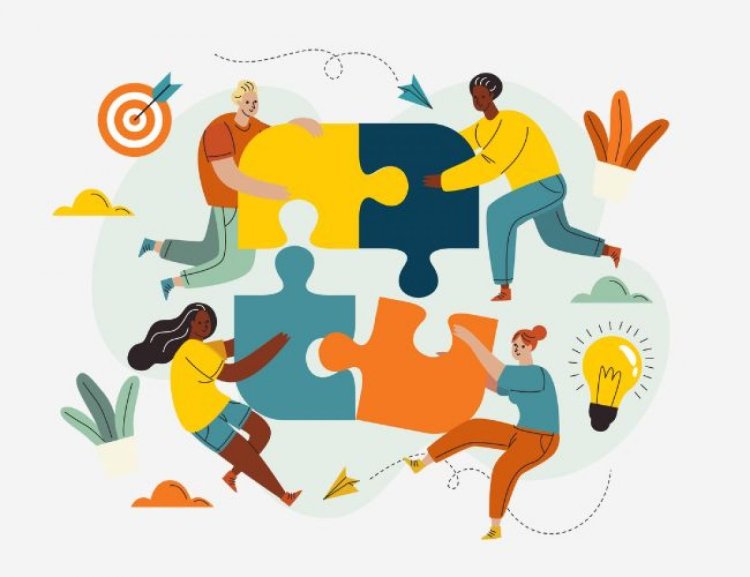How Recognition Platforms Help Employees and HR Connect in a Positive Way
Discover how recognition platforms foster meaningful connections between employees and HR, enhancing workplace culture and driving engagement. Learn the benefits of streamlined feedback, increased motivation, and improved communication through effective recognition strategies.
Share this Post to earn Money ( Upto ₹100 per 1000 Views )

In today’s fast-paced work environment, fostering a positive relationship between employees and Human Resources (HR) is more important than ever. With the rise of remote and hybrid work settings, maintaining engagement, morale, and a sense of connection has become increasingly challenging. Recognition platforms have emerged as a powerful tool in bridging this gap, offering a seamless and effective way for HR to connect with employees in a meaningful and positive manner.
The Power of Employee Recognition
Recognition has always been at the core of building strong relationships between employees and management. By acknowledging achievements, contributions, and efforts, organizations can boost morale, enhance productivity, and create a culture of appreciation. However, the traditional methods of employee recognition, such as annual awards or one-off bonuses, often fall short of fostering ongoing engagement.
Recognition platforms change this by making recognition a more frequent and accessible part of everyday work life. These platforms empower HR to offer timely feedback, celebrate wins, and strengthen connections with employees on an ongoing basis.
Benefits for HR: Strengthening the Connection
1. Simplified and Scalable Recognition
HR departments are responsible for building a positive company culture, but without the right tools, the process of recognizing every employee can be overwhelming. Recognition platforms automate this process, making it easy to deliver recognition on a consistent basis, regardless of the size of the organization. They also provide HR with real-time data on employee achievements, making it easier to identify and reward top performers.
2. Promoting Transparency and Fairness
Recognition platforms help HR create a transparent and fair system for rewarding employees. By using these tools, HR can ensure that recognition is based on objective criteria, such as meeting performance targets or contributing to company culture. This promotes fairness and helps eliminate bias, as all employees have the same opportunity to be recognized.
3. Real-Time Feedback
With features such as instant recognition and anonymous feedback, HR can offer real-time responses to employee actions. Whether it's a simple "thank you" or a shoutout for a job well done, these moments of appreciation can happen immediately, fostering a positive feedback loop. HR can also gather valuable insights from employees through anonymous feedback forms, helping them understand how their recognition efforts are being received and where improvements can be made.
Benefits for Employees: Fostering Engagement and Satisfaction
1. Feeling Valued and Appreciated
Employees thrive when they feel valued, and recognition platforms allow them to experience appreciation in real-time. Whether it's on-the-spot recognition from a peer or a formal acknowledgment from HR, these platforms provide employees with tangible evidence that their efforts are seen and appreciated.
2. Building a Sense of Belonging
In a remote or hybrid work environment, it’s easy for employees to feel disconnected. Recognition platforms help bridge this gap by creating opportunities for team members to recognize one another, strengthening relationships and building a sense of community. For instance, peer-to-peer recognition fosters collaboration and teamwork, reinforcing a positive company culture.
3. Empowering Personal Growth
Many recognition platforms integrate with employee development programs, offering employees insights into their performance and areas for improvement. Through tools like anonymous feedback surveys and management feedback forms, employees receive constructive feedback that helps them grow professionally while feeling supported by HR.
How HR and Recognition Platforms Build a Positive Culture
1. Enhancing Communication Channels
Recognition platforms open up new communication channels between employees and HR. By providing an easily accessible platform for feedback, HR can stay in tune with the employee experience and address concerns before they become bigger issues. This fosters a culture of open communication, where employees feel heard and valued.
2. Supporting Diversity and Inclusion Initiatives
HR can leverage recognition platforms to support diversity, equity, and inclusion (DEI) efforts. By offering tools to recognize and celebrate different perspectives, contributions, and experiences, these platforms promote an inclusive environment where all employees feel respected and valued. HR can also track recognition data to ensure that diverse employees are being celebrated fairly and equitably.
3. Encouraging Peer Recognition
HR isn’t the only source of recognition in an organization. Recognition platforms allow employees to recognize their peers, creating a bottom-up culture of appreciation. This decentralized approach empowers employees to take ownership of the company culture and play an active role in fostering a positive and engaging workplace.
Conclusion: A Tool for Connection and Engagement
Recognition platforms serve as a vital link between employees and HR, helping build trust, engagement, and satisfaction in the workplace. By promoting real-time, fair, and transparent recognition, these tools create a positive feedback loop that benefits everyone in the organization. In an age where remote and hybrid work are becoming the norm, recognition platforms ensure that employees feel connected and appreciated—no matter where they are.
With the right recognition platform in place, HR can better support employees, while employees can feel more connected and valued, paving the way for a thriving organizational culture.

















